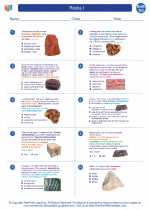Zero Rest Mass
The concept of zero rest mass is an important concept in physics, particularly in the study of subatomic particles and the theory of relativity. Rest mass, or simply mass, is the mass of an object when it is not in motion. The rest mass of an object is a fundamental property and is a measure of the amount of matter in that object. Some subatomic particles, such as photons and gluons, are thought to have zero rest mass.
Subatomic Particles with Zero Rest Mass
It is believed that certain subatomic particles, such as photons and gluons, have zero rest mass. A photon is a fundamental particle of light and carries electromagnetic force, while gluons are the particles that mediate the strong force that holds quarks together within protons and neutrons.
Implications of Zero Rest Mass
Subatomic particles with zero rest mass, such as photons, move at the speed of light. This has significant implications for the theory of relativity, as it led to the development of the theory of special relativity by Albert Einstein. According to this theory, the mass of an object increases as its speed approaches the speed of light. However, since photons already travel at the speed of light and have zero rest mass, they do not experience this increase in mass as they accelerate.
Study Guide
- Define rest mass and explain its significance in the context of subatomic particles.
- Describe the properties of photons and gluons, focusing on their zero rest mass.
- Discuss the implications of zero rest mass for the theory of relativity and the behavior of particles at high speeds.
- Explain how the concept of zero rest mass challenges traditional notions of mass and motion.
- Discuss the experimental evidence supporting the idea of zero rest mass for certain subatomic particles.
◂Earth Science Worksheets and Study Guides High School. Rocks I

 Worksheet/Answer key
Worksheet/Answer key
 Worksheet/Answer key
Worksheet/Answer key
 Vocabulary/Answer key
Vocabulary/Answer key
 Vocabulary/Answer key
Vocabulary/Answer key
 Vocabulary/Answer key
Vocabulary/Answer key
